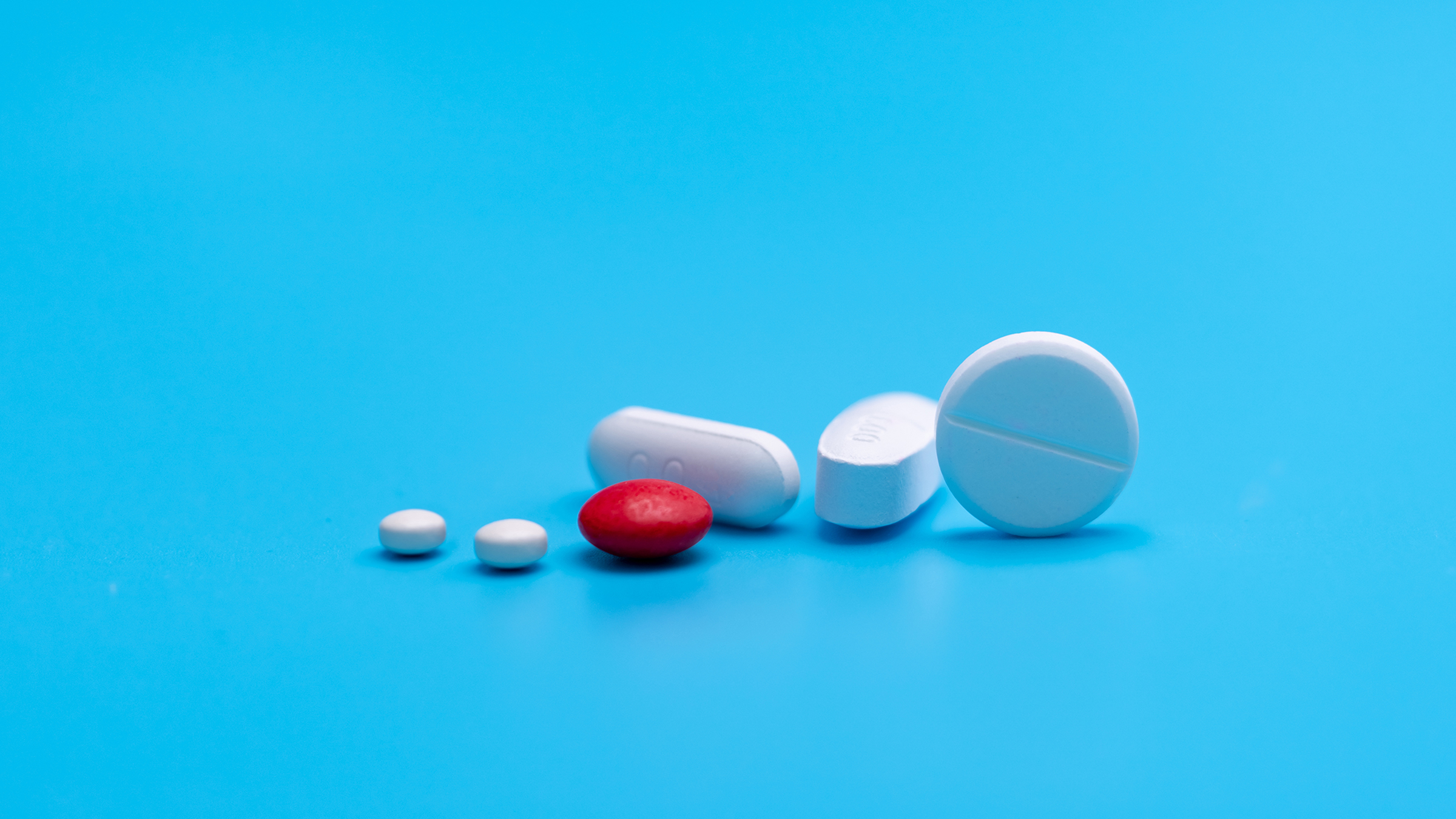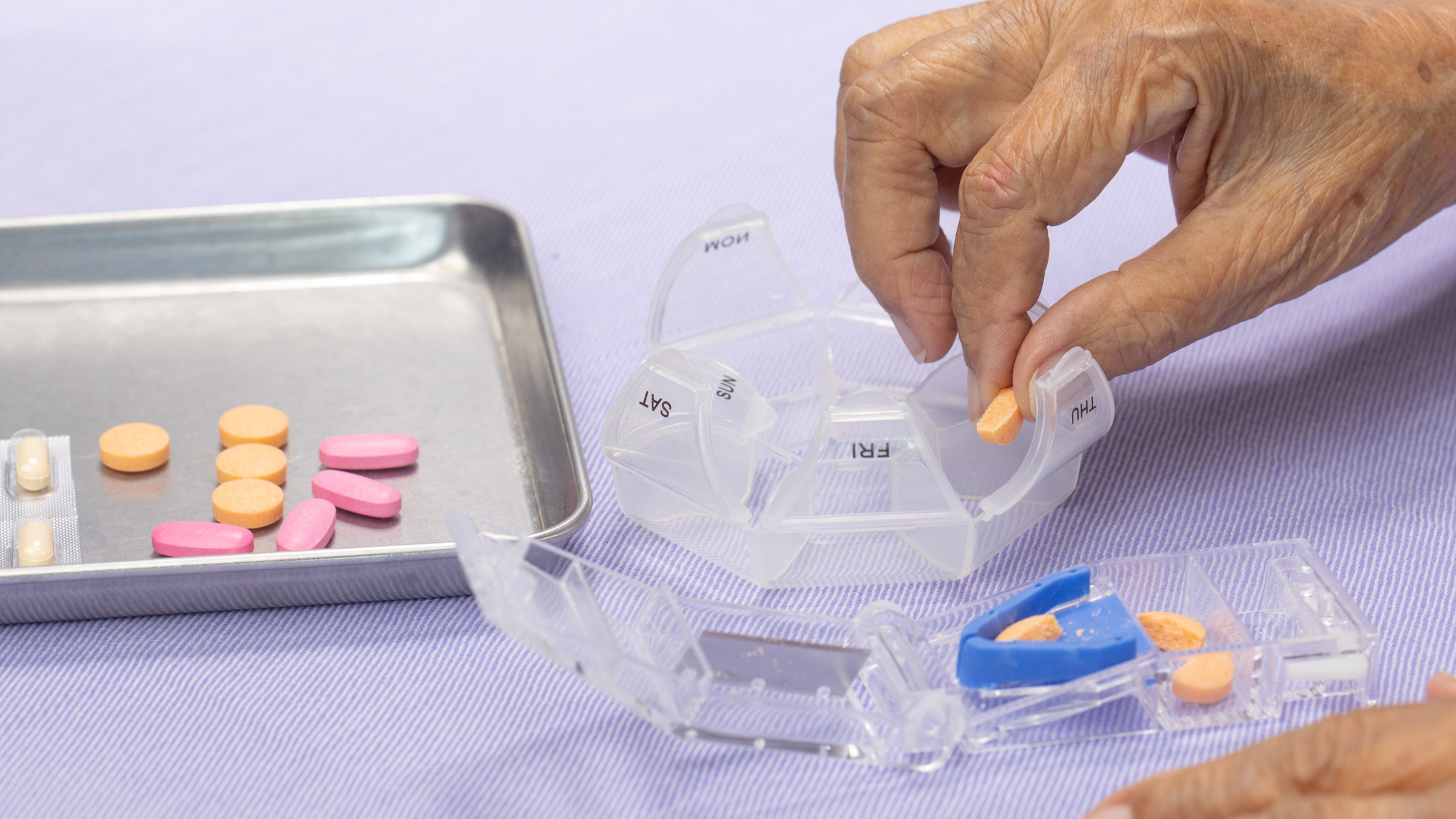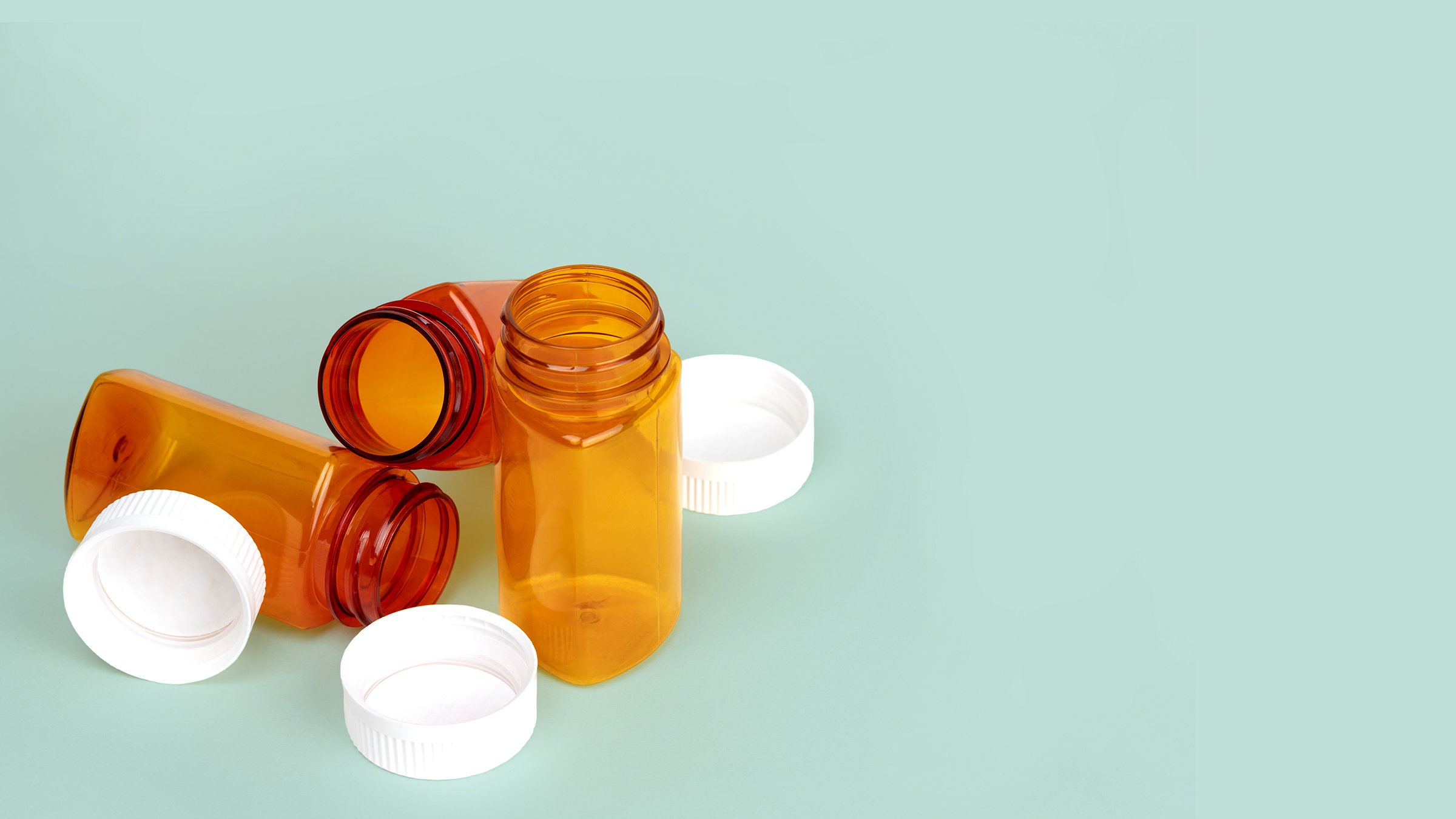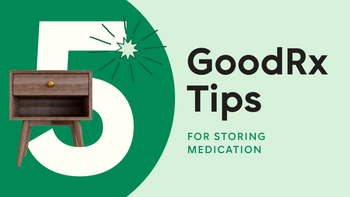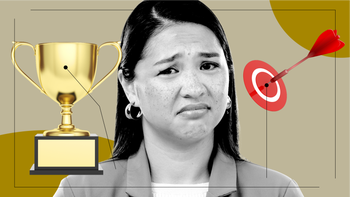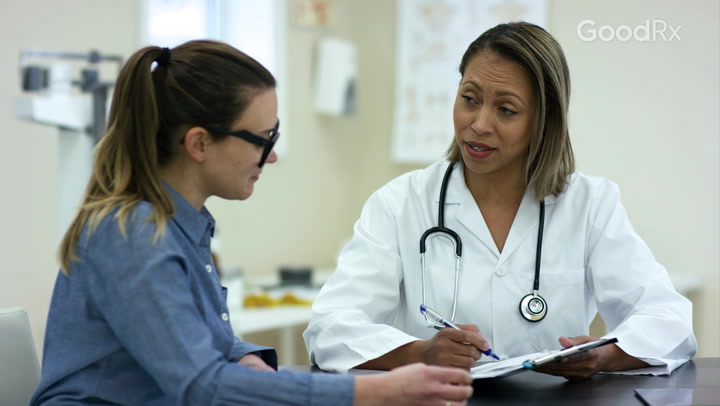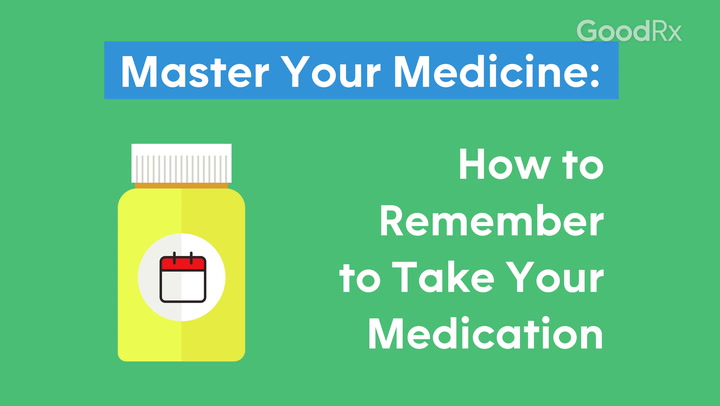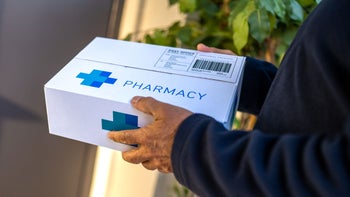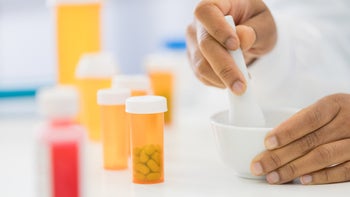
What Can I Do If I Have Trouble Swallowing Pills?
Key takeaways:
Both children and adults may have trouble swallowing pills for various reasons.
There are strategies and tips to help make swallowing pills easier.
If you have difficulty swallowing pills, talk with your healthcare provider or pharmacist. They can help you find the best way to make swallowing your medications easier.

It’s a tough pill to swallow. This is a common metaphor, but it’s also a frequent problem that many people face. Children often have trouble swallowing pills, and up to 50% of adults have the same issue. So, if you have trouble swallowing pills and are looking for guidance, don’t feel alone.
Trouble swallowing pills can lead to various problems. It can cause some people to delay or skip their medication doses. And if this happens consistently, medical conditions may get worse with time. Some people may decide to split or crush their pills, but this isn’t appropriate for every medication.
Here, we’ll discuss taking oral medications — why you might have trouble swallowing pills, how to make taking pills easier, and if alternative options are available.
Why do I have trouble swallowing pills?
There are many reasons that you might have trouble swallowing pills. In some cases, it could be due to a medical condition. Examples of these include:
Abnormal swallowing abilities: Some people are born with a health condition — like a cleft palate (opening in the roof of the mouth) — that makes it harder to suck and swallow.
Cancer: Cancer treatments can cause side effects that can lead to problems swallowing. This includes dry mouth, mouth sores, and odynophagia (painful swallowing).
Dementia: If you or a loved one live with dementia, memory loss can make chewing and swallowing difficult.
Head trauma: People who have had a head injury or stroke might have less feeling in their mouth or throat. These conditions can also weaken swallowing muscles.
Infection or irritation: Sometimes, infections or throat irritation can lead to swallowing difficulties.
Nervous system medical conditions: People with medical conditions that affect the central nervous system — like cerebral palsy and Parkinson’s disease — might have weakened or damaged muscles and nerves that affect swallowing.
If you have a medical condition that causes swallowing troubles, talk with your healthcare provider. Based on your situation, they can try to help you obtain your medication doses more easily. They could also refer you to a speech or language therapist if needed.
But if you don’t have a medical condition that makes it harder to swallow pills, there are other possible reasons for this.
Do I have a fear of swallowing pills?
Even if you don’t have a medical condition, a previous bad experience — like choking while taking a medication — can lead to a fear of swallowing pills.
Plus, some medication characteristics are also linked to a fear or inability to swallow pills:
Shape: Some people prefer round and flat pills, and other people like oval pills. If you’re taking an unpreferred pill shape, this can lead to swallowing problems.
Size: If you dislike extra large pills, that’s natural. Many people prefer taking more medium-sized pills over one big pill. Many people also don’t like small pills that can have the feeling of being stuck in your throat or on your gums.
Taste: Some people might be sensitive to certain tastes. A pill with an unpleasant taste can cause swallowing difficulties.
Texture: Many people prefer a firm and smooth coating on pills that can slip down the throat. So, pills that have a sticky texture may not be ideal.
Some medications can also cause or worsen swallowing problems because of side effects. For example, olanzapine (Zyprexa) — a medication used to treat various mental health conditions — can cause dry mouth. This may make it harder to swallow.
Are there any tips and strategies to help swallow pills?
Yes, there are two techniques that can generally help with swallowing pills.
If you usually have difficulties with swallowing tablets, consider using the pop-bottle method.
Place a tablet on your tongue.
Close your lips around the opening of a plastic bottle that's filled with water.
Continue to keep your lips tightly closed around the opening of the plastic bottle. Then, tilt your head back and suck water from the bottle. Immediately swallow the water with the tablet.
And if you usually have trouble swallowing capsules, consider using the lean-forward technique:
Place a capsule on your tongue.
Take a medium sip of water without swallowing.
Slightly lean your head forward as you swallow the water and capsule.
As you continue to train and gain experience through repetition, you might become more comfortable with taking pills.
But, before using these strategies, it’s important that you talk with your healthcare provider or pharmacist. They can give you personalized advice for you and your particular medication.
Can I dissolve my pill in water instead of swallowing it whole?
It depends.
Studies show you can dissolve some medications in water without changing their effectiveness. For example, you can crush a levothyroxine (Synthroid) tablet and place it in 1 to 2 teaspoons of water before drinking it.
But this method isn’t appropriate for all medications. Before crushing and dissolving any pill in water, talk with your healthcare provider and pharmacist first.
Are there any types of pills or tablets that I shouldn’t dissolve or crush?
According to the Institute for Safe Medication Practices (ISMP), there are many medications that shouldn’t be crushed or dissolved. In general, avoid crushing or dissolving the following pill types:
Controlled-delivery (CD)
Controlled-release (CR)
Delayed-release (DR)
Enteric-coated (EC)
Extended-release (ER, XL, XR)
Long-acting (LA)
Slow-release (SR)
Sublingual (under-the-tongue)
Crushing or dissolving these types of medications can result in several potential problems. This can include effects like decreased effectiveness, a higher risk for side effects, or an overdose.
If you’re unsure if this applies to any of your medications, your pharmacy label should be able to help. The abbreviations mentioned above — such as DR, ER, or LA — are usually printed on your medication’s label alongside the medication’s name.
Are there any tips to help my child swallow pills?
Swallowing pills is usually a learned skill. Consider teaching your child to swallow pills using the strategies mentioned above.
As your child gains experience through repetition, swallowing pills may become easier. Make sure to help your child relax and reinforce successful pill-swallowing attempts with reward and praise.
But, if necessary, you can also consider pill-swallowing aids. You can push a pill through a pill-coating device, for example, to cover the pill with a smooth, flavored coating. Pill-swallowing sprays are also available. You can spray a few puffs to the back of your child’s mouth and throat. Both of these options mask poor tastes and make pills easier to swallow.
Is it okay to swallow pills with drinks other than water?
It depends. Some medication manufacturers provide guidance in their product labeling.
For example, if you experience stomach upset with ibuprofen (Motrin, Advil), you can take this over-the-counter (OTC) medication with milk. This is mentioned in ibuprofen’s labeling.
But this isn’t appropriate for all medications. So, talk with your healthcare provider or pharmacist before mixing your medications with drinks other than water.
WHAT TO READ NEXT
Popular stories this week
Can I request alternative medication forms?
Yes. There are several different medication forms (types). If you can’t swallow a tablet or capsule, ask your healthcare provider if any other medication types are available for your specific situation. These can include:
Liquids: If you prefer a liquid version, some medications — like amoxicillin — are available as a powder in addition to a tablet or capsule. A pharmacy can mix this powder and turn it into a liquid medication for you.
Pull-apart capsules: If you like taking your medication with a small amount of food, some capsules — like omeprazole (Prilosec) — can be gently pulled apart. The contents inside the capsule can be mixed with a tablespoon of applesauce.
Oral disintegrating tablets (ODT): Some medications — like ondansetron (Zofran) — are also available in an ODT form. You can simply place an ODT medication in your mouth and wait for it to dissolve before swallowing.
Tablets: You can dissolve some tablets in liquids like water before taking them. And if you prefer, some medications can be cut in half along a scored line to make them smaller and easier to take.
If you’re interested in alternative medication forms, reach out to your healthcare provider. They can help you try to find a better option. And, if appropriate, they can also tell you how to best mix a medication with certain foods or drinks.
The bottom line
Trouble with swallowing pills affects many children and adults. This can be due to many causes, including previous bad experiences, health conditions, or medication side effects. Pill characteristics — like size and texture — are also linked to difficulties swallowing pills.
Fortunately, there are several strategies that can help make swallowing pills easier. Since the best method varies by person and medication, talk with your healthcare provider or pharmacist before trying any tips to lessen any problems with swallowing pills.
References
American Cancer Society. (2020). Swallowing problems.
Azer, S. A., et al. (2021). Dysphagia. StatPearls.
Bracken, L., et al. (2020). Can children swallow tablets? Outcome data from a feasibility study to assess the acceptability of different-sized placebo tablets in children (creating acceptable tablets (CAT)). BMJ Open.
Carnaby-Mann, G., et al. (2005). Pill swallowing by adults with dysphagia. Archives of Otolaryngology — Head & Neck Surgery.
Fields, J., et al. (2015). Pill properties that cause dysphagia and treatment failure. Current Therapeutic Research, Clinical and Experimental.
MedlinePlus. (2021). Cerebral palsy.
MedlinePlus. (2021). Swallowing disorders.
National Alliance on Mental Illness. (2021). Medication frequently asked questions.
National Council on Patient Information and Education. (2013). Accelerating progress in prescription medicine adherence: the adherence action agenda.
National Institute on Deafness and Other Communication Disorders. (2017). Dysphagia.
Patel, A., et al. (2015). Effectiveness of pediatric pill swallowing interventions: a systematic review. Pediatrics.
Radhakrishnan C., et al. (2021). A difficult pill to swallow: an investigation of the factors associated with medication swallowing difficulties. Patient Prefer Adherence.
Schiele, J. T., et al. (2014). Two techniques to make swallowing pills easier. The Annals of Family Medicine.
Sefidani Forough, A., et al. (2018). A spoonful of sugar helps the medicine go down? A review of strategies for making pills easier to swallow. Patient Prefer Adherence.
Stroke Association. (2021). Swallowing problems.
U.S. Food & Drug Administration. (2018). Amoxicillin [prescribing information].
U.S. Food & Drug Administration. (2020). Synthroid [prescribing information].
U.S. Food & Drug Administration. (2021). Motrin IB [labeling].


